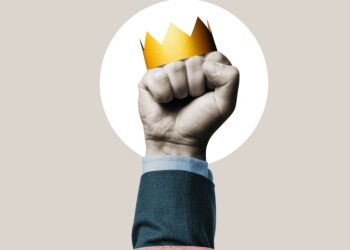Saudi Aramco’s landmark public listing remains shrouded in mystery with valuations varying widely from $1.2 to $2.3 trillion.
A degree of uncertainty surrounds the IPO of the Saudi Arabian Oil Company (Saudi Aramco)–the world’s most profitable company–with potential investors, rattled by a damaging attack on Aramco’s facilities in September, still lacking key details, such as how much of the company will be sold, and when the sale will happen.
The country’s deputy prime minister, Crown Prince Mohammed bin Salman, has said publicly he wants a $2 trillion valuation of Saudi Aramco, in the hope of raising billions of dollars and moving the country’s economy away from oil by investing in non-energy industries.
That figure would be almost twice the value of Microsoft, currently the world’s most valuable listed company, and seven times that of Exxon Mobil Corp, the biggest listed oil major by market cap.
Financial analysts have been meeting with Aramco’s management over the past month to get more information on the notoriously secretive company, while Saudi Arabia hosted its glitzy annual Future Investment Initiative (FII), or the so-called “Davos in the Desert,” last week to lure the stars of the business world.
Nevertheless, analysts and investors alike see a number of potential concerns which could yet dampen enthusiasm for the offering.
A troubled region
In 2018, several CEOs dropped out of the FII event, following accusations that the Saudi regime was behind the murder of journalist Jamal Khashoggi–a claim it denies. And while it’s true that this year’s summit saw a rise in attendance, the kingdom will need more than a sparkling attendee list of business elites to mend its reputation for human rights violations.
Elsewhere, Aramco has said it does not expect the Sept. 14 attacks on its facilities, which initially halved its production, will have a material impact on its business, yet the incident–which the Saudi government has blamed on Iran–underlined the potential political risk associated with the company and Saudi Arabia as a whole.
There are further worries. Legal & General Investment Management, one of Britain’s biggest asset managers, said Monday it has not yet decided whether to invest in Aramco, citing as its reason that “concerns from a corporate governance viewpoint are well-flagged.”
Likewise, the close relationship between the crown prince and new Aramco chairman Rumayyan, who also heads the kingdom’s sovereign wealth fund, is a governance concern for some investors.
How much is Aramco worth?
Reuters reports that Aramco could offer 1%-2% of its shares, raising as much as $20 billion to $40 billion, which would likely surpass the record-breaking IPO of Chinese e-commerce giant Alibaba in 2014.
Bank of America Merrill Lynch has a range of $1.2 trillion to $2.3 trillion for the valuation of the company, while EFG Hermes says $1.55 trillion to $2.1 trillion, according to two fund managers who have seen the research, Reuters reported Monday.
Goldman Sachs–one of the IPO coordinators–has put Saudi Aramco’s valuation between $1.6 trillion and $2.3 trillion, sources consulted by Reuters said.
It’s believed that a major factor in the wide range is the various assumptions analysts are making for the future direction of oil prices.
Aramco released some extra financial information Sunday and Monday, including detailed nine-month earnings, which showed net income fell to $68.2 billion by the end of September 30, down from $83.1 billion a year earlier, likely reflecting lower oil prices.
According to Reuters, the company’s net income for the third quarter of 2019 amounted to $21.1 billion. By way of comparison, Exxon Mobil’s income for the same period was just over $3 billion.
Saudi has vowed to use the proceeds of the IPO to deliver on Prince Mohammed’s ambitious domestic and economic reforms.
Saudi Arabia has successfully pushed through some business reforms, such as loosening foreign ownership limits on its stock market and launching its inaugural tourist visa. Indeed, its improvements led the country to climb 30 spots in the World Bank’s Doing Business Index this year.
Yet foreign direct investment plummeted after Prince Mohammed’s anti-corruption roundup in 2017, falling to $1.4 billion in 2017 from $7.5 billion in 2016. Investment picked up slightly to $3.2 billion in 2018.












